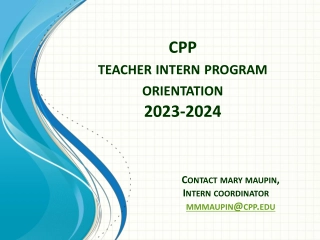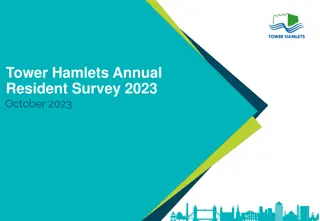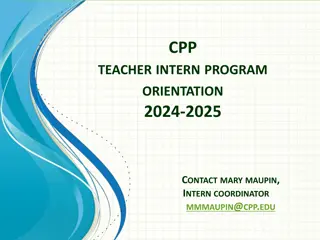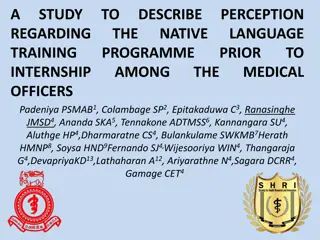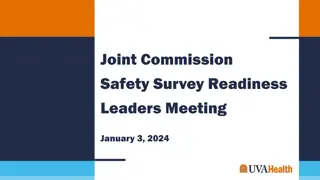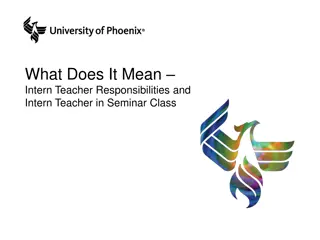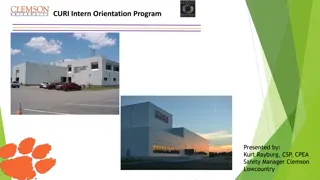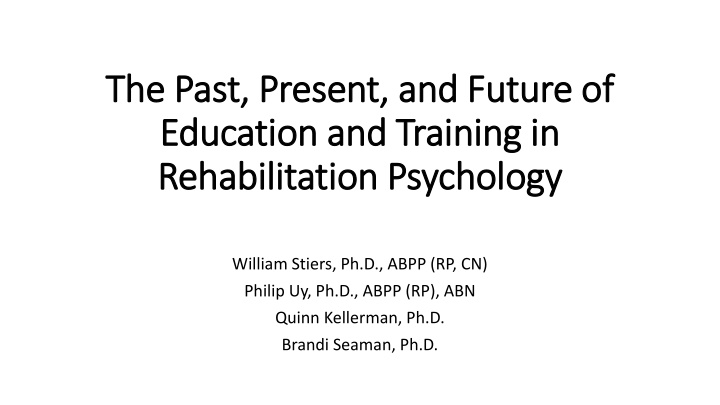
Evolution of Education and Training in Rehabilitation Psychology
Explore the past, present, and future landscape of education and training in rehabilitation psychology, including insights on internship programs, faculty supervision, populations served, and competencies taught. Gain valuable knowledge on the development and challenges within this field.
Download Presentation

Please find below an Image/Link to download the presentation.
The content on the website is provided AS IS for your information and personal use only. It may not be sold, licensed, or shared on other websites without obtaining consent from the author. If you encounter any issues during the download, it is possible that the publisher has removed the file from their server.
You are allowed to download the files provided on this website for personal or commercial use, subject to the condition that they are used lawfully. All files are the property of their respective owners.
The content on the website is provided AS IS for your information and personal use only. It may not be sold, licensed, or shared on other websites without obtaining consent from the author.
E N D
Presentation Transcript
The Past, Present, and Future of The Past, Present, and Future of Education and Training in Education and Training in Rehabilitation Psychology Rehabilitation Psychology William Stiers, Ph.D., ABPP (RP, CN) Philip Uy, Ph.D., ABPP (RP), ABN Quinn Kellerman, Ph.D. Brandi Seaman, Ph.D.
Survey of Internship Programs Philip Uy, Ph.D., ABPP (RP), ABN Meredith Williamson, Ph.D. Caitlyn Arutiunov, Ph.D. Jaclyn Klepper, Ph.D. Lakeya McGill, Ph.D. Jason Boothe, Ph.D. Michelle Accardi-Ravid, Ph.D. Kirk Stucky, Psy.D. William Stiers, Ph.D.
Program Information There were 426 programs in the Association of Psychology Postdoctoral and Internship Centers (APPIC) directory that listed Training Opportunities as including Rehabilitation Psychology A total of 224 responded but 116 did not have formal rehabilitation involvement Over half of the programs did not provide rehabilitation psychology training Incorrect identification is problematic for those applying to internship The largest training programs involving Rehabilitation Psychology are VAs (37%) and University Hospitals & Clinics (27%)
Supervisors 15 programs had faculty with ABRP 16 programs had faculty with ABCN 3 programs had faculty with ABCHP 3 programs had had faculty with multiple ABPPs 3 programs had faculty who were non-ABPP boarded (e.g., ABN, ABPdN) Looking at the numbers It is notable programs that identify as having rehabilitation psychology training have more neuropsychology faculty and almost as many clinical psychology faculty as rehabilitation psychology faculty
Populations Most common conditions Brain injury Orthopedic Neurologic Pain SCI Trainees more often worked with the above populations as compared to 2007
Competencies The competencies most often formally taught are: Diversity (100%1; 94%2; 78%3) inter-professional collaboration (82%1; 75%2; 79%3) substance abuse (73%1; 63%2; 67%3) pain (73%1; 75%2; 82%3) 1Primary rehab involvement 2Secondary rehab involvement 3Optional rehab involvement While core rehabilitation competencies were: Rehabilitation populations (52%1; 26%2; 28%3) Adjustment to disability (52%1; 26%2; 26%3) Sexuality (55%1; 25%2; 21%3) These numbers suggest that although program provide rehabilitation training, rehabilitation psychology competencies may not be comprehensively taught As the internship year can be counted as 1 of the 3 year requirement for ABRP, is this level of training sufficient?
Survey of Postdoctoral Programs William Stiers, Ph.D., ABPP (RP, CN) Kirk Stucky, Psy.D., ABPP (RP, CN)
Program Information There were 297 programs identified using the APPIC directory listing of Training Opportunities, APA accredited programs, TBI/SCI/Burn Model Systems, VA SCI and Polytrauma programs, Div 22 and Div 40 program listings, APPCN listing A total of 100 programs involved rehabilitation psychology training 94% of programs completed the survey
Program Information There has been a substantial increase over the past 12 years in the number of psychology postdoctoral training programs involving work in rehabilitation settings, and a substantial increase in the number of faculty and trainees working in these settings Most programs were in VA hospitals/clinics (35%) and public/private hospitals/clinics (38%)
Supervisors 50% of programs had faculty with ABRP 62% of programs had faculty with ABCN Looking at the numbers It is notable programs that identify as having rehabilitation psychology training have more neuropsychology faculty than rehabilitation psychology faculty
Populations There has been an overall decrease in the variety of rehabilitation populations with which residents work, so that residency training has become more focused on specific populations to the exclusion of others. Fewer than half of the programs involve work with persons with spinal cord injury or amputation, both important traditional rehabilitation populations, and that only 60% of programs involve work with persons with orthopedic/musculoskeletal conditions, one of the most common causes of disability There appears to have been a growth in psychologists involved with specialty rehabilitation populations rather than general rehabilitation populations that are the majority of rehabilitation patients.
Competencies There has been an overall decrease in number of ABRP competencies that are formally taught, so that residency training has become more focused on specific competencies to the exclusion of others less than half of the programs formally teach sexual functioning, family/couples functioning, or educational/vocational/recreational functioning, all issues strongly related to quality of life for persons with disability only 52% of programs formally teach adjustment to disability, which is a foundational construct in understanding the individual and social psychology of disability
Conclusions it is evident that many of these training programs would benefit from greater interaction with Rehabilitation Psychology specialists, and greater availability of curricular materials to teach understanding of a wide range of rehabilitation patients and to increase formal teaching of a wide range of the specialty competencies that are essential for working in these settings.

